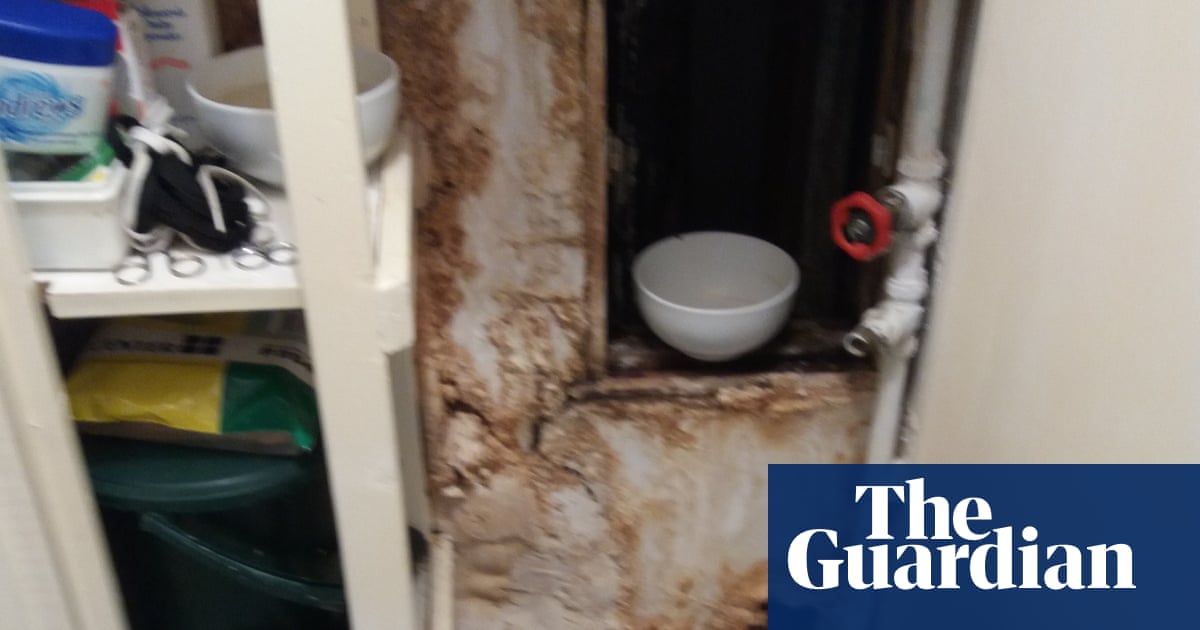Doctors and medical staff in Gaza say their increasing hunger and the lack of available food is beginning to leave them too weak to provide urgent medical care to patients inside hospitals full of malnourished and injured civilians.
Almost a dozen medical staff across the territory have told the Guardian and the Arabic Reporters for Investigative Journalism (ARIJ) of their increasingly desperate search for food and declining physical health due to hunger.
“They are in a state of extreme exhaustion. Some have fainted in the operating rooms,” said Dr Mohammed Abu Selmia, the director of al-Shifa hospital in Gaza City, who said that like the people of Gaza, staff had not received any aid or had any meals in the past 48 hours.
“Medical services will be affected because our staff will not be able to hold out any longer in the face of this famine,” he added.
Many of the doctors and medical practitioners who sent messages to the Guardian did not want to be named as they feared being targeted by the Israeli military.
“Today I have been on a 24-hour shift,” said one physician at al-Shifa hospital. “At [the hospital] they are supposed to give us some rice for each shift, but today they told us there was none. My colleague and I [treated] 60 neurosurgery patients and right now I can’t even stand.”
Another general practitioner volunteering at al-Shifa hospital said: “I haven’t had anything to eat since yesterday and my family has nothing to eat. All day, I am thinking how can I get them flour or lentils or anything to eat [but] here’s nothing in the markets. We are no longer able to walk. We don’t know what to do.”
One surgeon at Nasser medical complex in Gaza said that the workload facing overstretched medical staff was increasing as more patients were being admitted for symptoms related to malnourishment.
“There are a high number of patients suffering from gastroenteritis, fainting and low blood sugar across all age groups of patients coming into the hospital,” he said. There is also a noticeable increase in post-surgical complications after operations due to malnutrition.
“I couldn’t eat for two days because I feared worsening my own gastroenteritis, and because of my low blood pressure I had to stop during a surgery on a girl who had been shot in the abdomen,” he said.
Abu Selmia said medical staff were still working despite the lack of food, but that the scale of the malnutrition they were facing in patients was putting a huge strain on an already depleted and exhausted workforce. He said that 21 children had died across the Palestinian territory in the past three days “due to malnutrition and starvation”.
“[These patients] need special nutrition, but there isn’t any, so they face risks,” he said. “Some die in their tents and homes and no one knows about it.”
Yesterday, the Unrwa chief, Philippe Lazzarini, said that his team had received reports of healthcare and aid workers across Gaza fainting due to hunger and exhaustion because of a lack of food.
Some medical staff spoke of having to decide whether to remain at work and provide urgent medical care or go out on to the streets to search for food for their families.
Others spoke of their fear of being forced to go to food distribution sites run by the Gaza Humanitarian Foundation and guarded by the Israel Defense Forces (IDF), which are the only place where food and aid is being allowed to be passed on to civilians in Gaza. Since May, more than 1,000 people have died while seeking food from the centres and other humanitarian convoys, according to the UN
Gaza’s healthcare system has been decimated during the 23 months of the conflict. In May, the World Health Organization said that at least 94% of all hospitals in the Gaza Strip were damaged or destroyed and only 19 of the Gaza Strip’s 36 hospitals remained operational.
“In recent days, healthcare workers in Gaza have collectively reported unprecedented levels of food insecurity, lowered immunity, repeated infections, severe fatigue, and frequent fainting during surgeries and rescue missions,” said Muath Alser, director of Healthcare Worker Watch, a Palestinian medical organisation. “We cannot afford mere condemnation. We need urgent action.”
In a statement, the IDF said that it is working to facilitate the distribution of humanitarian aid in order to allow hospitals in Gaza to continue to operate.
It also said that “following incidents in which harm to civilians who arrived at distribution facilities was reported, thorough examinations were conducted in the Southern Command and instructions were issued to forces in the field following lessons learned. The aforementioned incidents are under review by the competent authorities in the IDF.”

 15 hours ago
2
15 hours ago
2










 English (US)
English (US)